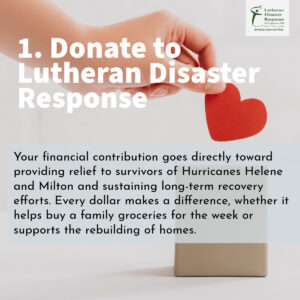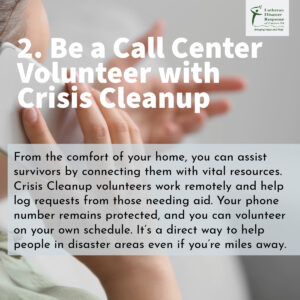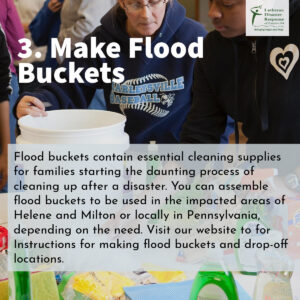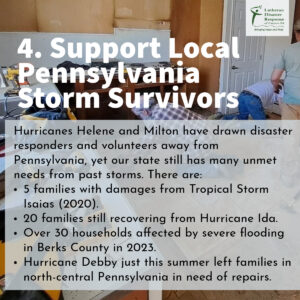Welcome, Victorian Village! An exciting addition to our Liberty communities — Learn more!
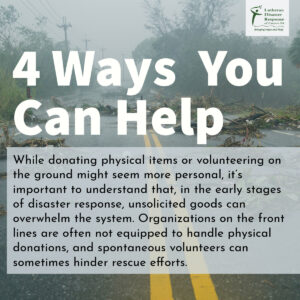
Why Cash is Best |
|
When disasters like Hurricanes Helene and Milton strike, it’s natural to want to help immediately. Communities face immense challenges—homes are lost, infrastructure is damaged, and daily necessities become difficult to access. In the midst of this chaos, it’s easy to assume that sending physical donations like food, clothing, or supplies is the best way to help. However, the most effective way to make an impact is often through monetary donations. Why Monetary Donations MatterCash donations to organizations like the ELCA Lutheran Disaster Response (LDR) provide immediate relief in the form of water, gift cards, clothing, tarps, and other critical needs. These funds also allow LDR to remain nimble, responding to needs as they arise without the burden of managing, sorting, or storing unsolicited items. More importantly, monetary donations help sustain long-term recovery efforts. Beyond the immediate aftermath, survivors need continued support for years—disaster case management, construction oversight, and emotional and spiritual care are essential parts of helping families rebuild. Cash enables these organizations to tailor their responses to each community’s unique needs and support their journey toward full recovery. How You Can HelpWhile donating physical items or volunteering on the ground might seem more personal, it’s important to understand that, in the early stages of disaster response, unsolicited goods can overwhelm the system. Organizations on the front lines are often not equipped to handle physical donations, and spontaneous volunteers can sometimes hinder rescue efforts. Here’s how you can help in a more effective and tangible way: |

|
|
|
|
|
|

